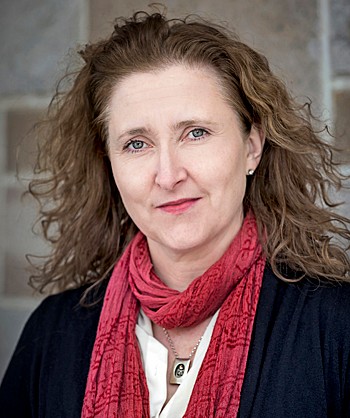Publications
- O’Dwyer, L.M., & Bernauer, J.A. (2014). Quantitative Research for the Qualitative Researcher. Thousand Oaks, CA: Sage.
- Shields, K.A., & O’Dwyer, L.M. (in press). Remedial education and completing college: Exploring differences by credential and institutional level. The Journal of Higher Education.
- Newton, A.D., & O’Dwyer, L.M. (in press). Propensity score analysis for examining the effects of a district-level intervention: A model for school-university partnerships. In R.M. Reardon & J. Leonard (Eds.), Exploring the Community Impact of Research - Practice Partnerships in Education.
- O’Dwyer, L.M. (in press). Experimental designs. In Frey B.B. (Ed.), Encyclopedia of educational research, measurement and evaluation. Thousand Oaks, CA: Sage.
- O’Dwyer, L.M., Wang, Y., & Shields, K.A. (2015) Teaching for Conceptual Understanding: A Cross-national Comparison of the Relationship between Teachers’ Instructional Practices and Student Achievement in Mathematics. Large Scale Assessment. 3, 1. DOI 10.1186/s40536-014-0011-6.
- Dulaney, A., Vasilyeva, M., & O’Dwyer, L.M. (2015). Individual differences in cognitive resources and elementary school mathematics achievement: Examining the roles of storage and attention. Learning and Individual Differences. 37, 55.63.
- O’Dwyer, L.M., & Parker, C.E. (2014). Analyzing nested data using multilevel modeling in SPSS (REL 2014–046). Washington, DC: U.S. Department of Education, Institute of Education Sciences, National Center for Education Evaluation and Regional Assistance, Regional Educational Laboratory Central.
- Peoples, S.M. & O’Dwyer, L.M. (2014) The Nature of Science Instrument-Elementary (NOSI-E): The End of the Road? Journal of Applied Measurement. 15(4):338-58.
- Parker, C.E., O’Dwyer, L.M., & Irwin, C., 2014, The correlates of academic performance for English language learner students in a New England district (REL 2014–020), Washington, DC: U.S. Department of Education, Institute of Education Sciences, National Center for Education Evaluation and Regional Assistance, Regional Educational Laboratory Northeast & Islands.
- O’Dwyer, L.M., & Parker, C.E. (2014). Analyzing nested data using multilevel modeling in SPSS (REL 2014–046). Washington, DC: U.S. Department of Education, Institute of Education Sciences, National Center for Education Evaluation and Regional Assistance, Regional Educational Laboratory Central.
- Grady, M. W., & O’Dwyer, L. M. (2014). The English Language Learner Program Survey for Principals (REL 2014–027). Washington, DC: U.S. Department of Education, Institute of Education Sciences, National Center for Education Evaluation and Regional Assistance, Regional Educational Laboratory Northeast & Islands.
- Peoples, S.M., O’Dwyer, L.M., Wang, Y., Brown, J., Shields, K., Rosca, C. (2013). Development and Application of the Elementary School Science Classroom Environment Scale (ESSCES): Measuring Student Perceptions of Constructivism within the Science Classroom. Journal of Learning Environments.
- Dash, S., Magidin de Kramer, R., O’Dwyer, L. M., Masters, J., & Russell, M. (2012). Impact of online professional development on teacher quality and student achievement in fifth grade mathematics. Journal of Research on Technology in Education 45(1) p.1.
- Masters, J., Magidin de Kramer, R., O’Dwyer, L.M., Dash, S., & Russell, M. (2012). The effects of online teacher professional development on fourth grade students’ knowledge and practices in English Language Arts. The Journal of Technology and Teacher Education, 20(1), 21-46.
- de Kramer, R., Masters, J., O’Dwyer, L. M., Dash, S. & Russell, M., (2012). The Effects of Online Teacher Professional Development on Seventh Grade Teachers' and Students' Knowledge and Practices in English Language Arts. Teacher Educator, 47, 236–259.
- Poteat, V. P., O’Dwyer, L. M., & Mereish, E. H. (2012). Changes in how students use and are called homophobic epithets over time: Patterns predicted by gender, bullying, and victimization status. Journal of Educational Psychology, 104, 393-406.
- Wang, Y. & O’Dwyer, L.M. (2011). Teacher-directed Student-use of Technology and Mathematics Achievement: Examining Trends in International Patterns. Journal of Computers in Mathematics and Science Teaching, 30(1).
- Gobert, J., O’Dwyer, L. M., Horwitz, P., Buckley, B. Levy, S., Wilensky, W. (2011). An examination of students’ epistemologies in biology, chemistry, and physics: Domain differences and interactions with learning in rich, technology-based science environments. International Journal of Science Education, 33(5), 653.
- Hoyle, C., O’Dwyer, L.M., & Chang, Q. (2011). How Student and School Characteristics Are Associated with Performance on the Maine High School Assessment. (Issues & Answers Report, REL 2011–No. 102). Washington, DC: U.S. Department of Education, Institute of Education Sciences, National Center for Education Evaluation and Regional Assistance, Regional Educational Laboratory Northeast and Islands.
- Masters, J., de Kramer, R., O’Dwyer, L. M., Dash, S. & Russell, M., (2010). The Effects of Online Professional Development on Fourth Grade English Language Arts Teachers’ Knowledge and Instructional Practices. Journal of Educational Computing Research. 43(3), 355-375
- Bebell, D., O’Dwyer, L.M., Russell, M., & Hoffman, T. (2010). Concerns, considerations and new ideas for data collection and research in educational technology studies. Journal of Research on Technology in Education, 43(1),29-52.
- Gobert, J., O’Dwyer, L. M., Horwitz, P., Buckley, B. Levy, S., Wilensky, W. (2011). Examining the Relationship Between Students’ Understanding of the Nature of Models and Conceptual Learning in Biology, Physics, and Chemistry.. International Journal of Science Education, 33(5), 653.
- Horwitz, P., Gobert, J., Buckley, B.C., & O’Dwyer, L.M. (2010) Learning genetics with dragons: From computer-based manipulatives to hypermodels. In Jacobson, M. J., & Reimann, P. (Eds.) (pp. 61-87) Designs for learning environments of the future: International perspectives from the learning sciences. Springer.
- Russell, M., O’Dwyer, L.M., & Miranda, H. (2009). Diagnosing students’ misconceptions in algebra: Results from an experimental pilot study. Behavior Research Methods, 41(2), 414-424.
Awards
- April 2015 - Recipient of the AERA Learning Environments SIG/Springer Award for the best journal article (with Peoples, Wang, Brown, and Rosca)
- April 2014 - Recipient of the Outstanding Research Award from Division E, Counseling and Human Development, of the American Education Research Association (AERA) (with Poteat and Mereish).


